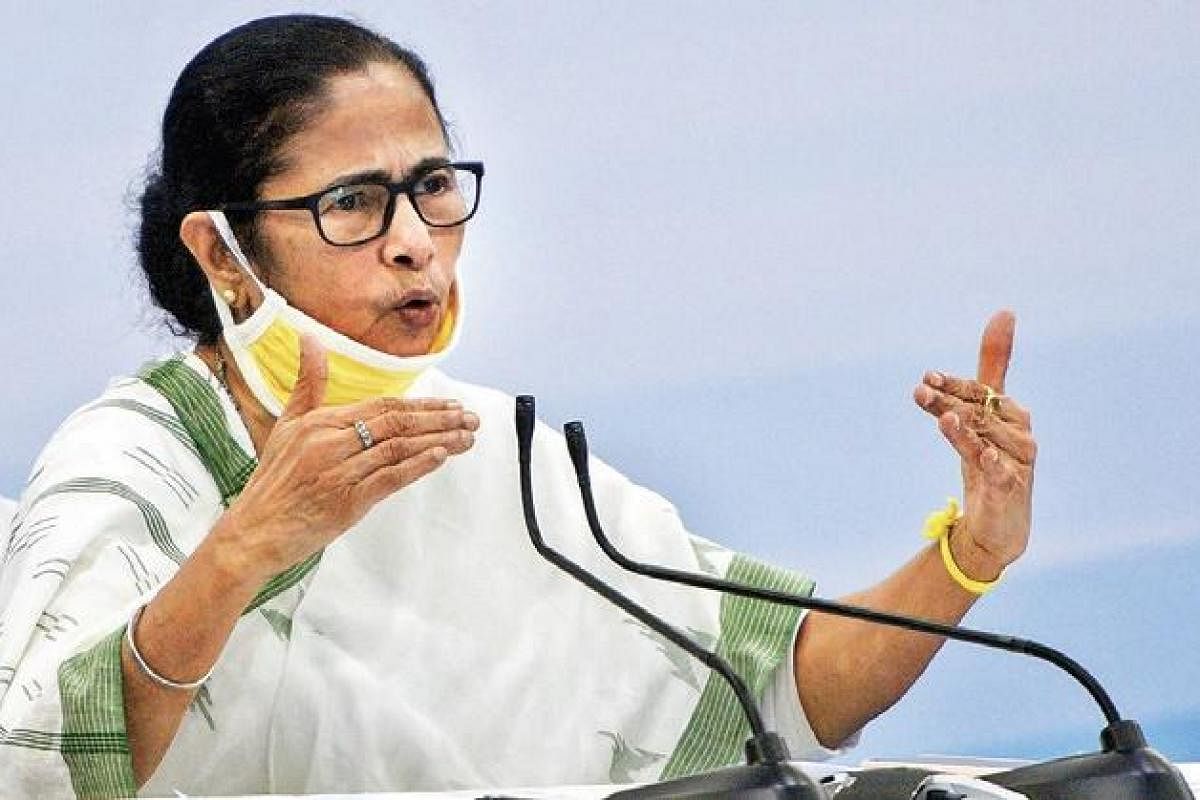Kerala: Industrial parks can have a bar in their premises
The government has also decided to encourage domestic production of IMFL and beer. A brand called Kerala Toddy will be introduced and all toddy shops will be given a new colour code.
Any entrepreneur who has at least five acre of land in and around Kolkata can apply to the state government for setting up an industrial park. Currently, a minimum of 20 acres of land is required for setting up an industrial park.

WB CM Mamata Banerjee (PTI file photo)
The Mamata Banerjee Cabinet today approved amendment of the existing policy for setting up private industrial parks to facilitate private investors who are keen to invest in plots in the city and adjoining areas.
The state government will amend the private industrial park policy that was introduced in 2014 for developing private industrial parks in and around Kolkata. The minimum area for developing private industrial parks in Kolkata, KMDA area, Howrah and North and South 24 Parganas has been relaxed from 20 to 5 acre and incentives would be given in three installments of 20, 30 and 50 per cent.
“The amendment will help us to achieve the target of setting up 100 industrial parks as proposed in the budget. We are hopeful that it will help more private partners to come forward and invest in industrial parks,” said HK Dwivedi, state chief secretary at Nabanna.
Advertisement
Any entrepreneur who has at least five acre of land in and around Kolkata can apply to the state government for setting up an industrial park. Currently, a minimum of 20 acres of land is required for setting up an industrial park. However, as it is difficult to get such a huge tract of land in the urban area, the state government has decided to relax the quantum of land.
This apart, currently incentives are provided to the private partner after completion of the park but now the government has decided to provide incentives during the ongoing process. For instance, 20 per cent of incentives would be provided for a certain part of work, 30 per cent for the next part and finally 50 per cent for the remaining part.
The amendment will further facilitate all activities related to warehouse, logistics, poultry, cold storage and fisheries in the park that were not allowed till now. Again, existing parks that are eager to expand will get permission. A single window system has also been introduced for MSMEs to get all licenses pertaining to fire, environment, land and trade as well as fire NOC.
Primary teachers: The Cabinet approved the appointment of around 7,000 primary teachers. In Malda and North 24 Parganas, 3,179 new posts of primary teachers have been created while procedure has been started to fill up another 3,925 vacant posts from empanelled candidates under the 2009 recruitment process.
Brick kilns: The Cabinet further gave its nod to relax norms to reign in illegal brick kilns and facilitate the small kilns across the state. Henceforth, underground digging of up to 1.5 metres for manufacturing bricks will be treated as non-mining activity and these brick kilns will not have to get any environmental clearances for registration. Once registered, workers of these kilns will be eligible for government benefits.
There are 5,635 registered brick kilns in the state. Till now, all underground digging was considered as mining activities that required environment clearance which was difficult and therefore illegal kilns flourished. The government too was unable to reign in such illegal kilns as workers were deprived of benefits under government schemes.
Tourism services: The Cabinet approved the Scheme for Recognition of Tourism Service Operators for West Bengal 2021 that will enable the government to conduct training and certification for all tour operators of different expertise. The certification will enable the tour operators to get recognition at the international level and thereby increase their employability, said Dwivedi.
Medical, nursing colleges: To enable private partners to set up medical and nursing colleges in the state, the Cabinet today allowed them to use the facilities at nearby 300-bedded and 100-bedded government hospitals respectively.
In order to set up a private medical college, there is a precondition that one has to have a 300-bedded hospital for training purposes and for a nursing college it is a 100-bedded hospital. As setting up a 300 or 100- bedded hospital is a time-consuming affair, the government will allow the private partner to use the facilities of a nearby government hospital for five years and after which one has to pay a user charge for using the government facilities, said Dwivedi.
Along with this, the private nursing college has to allot 25 per cent seats at government-fixed tuition fees.
Advertisement